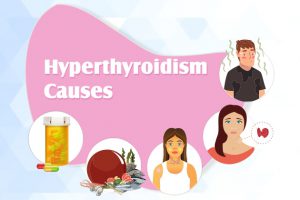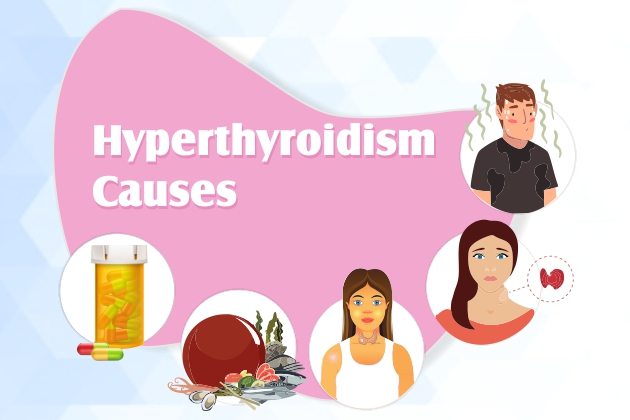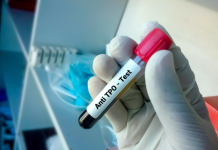

Unexplained weight loss, limitless energy — the early symptoms of hyperthyroidism may seem to appear as “good” symptoms. But, if not diagnosed and treated, it can lead to serious complications, such as potential heart trouble and increased risk for osteoporosis. To diagnose hyperthyroidism, a T3-T4-TSH test is conducted. This test measures the blood levels of T3 and T4 hormones as well as the TSH, a hormone produced by the pituitary gland.
What is Hyperthyroidism?
When an overactive thyroid gland releases thyroid hormones more than what your body needs,
Your thyroid gland produces triiodothyronine (T3) and thyroxine (T4) hormones. These hormones play an important role in the normal functioning of your entire body. If there is an imbalance in their levels, it can have a far-fetching impact on every aspect of your health.
Your thyroid hormones control the following:
- Breathing
- Metabolism
- Heart rate
- Weight
- Nervous system
- Body temperature
An overactive thyroid speeds up your body processes and brings about the following hyperthyroidism symptoms:
- Anxiety
- Nervousness
- Rapid heartbeat
- Excessive sweating
- Difficulty in sleeping
- Hand tremors
- Weight loss
Hyperthyroidism Causes: All You Need to Know
There are several causes, the most common ones include the following:
1. Graves’ disease
Graves’ disease, the most common cause of hyperthyroidism is an autoimmune disorder. With this disease, the immune system produces thyroid-stimulating immunoglobulin (TSI), an antibody that attacks the thyroid gland, causing it to produce more thyroid hormones than required.
2. Thyroiditis
When the thyroid gland is inflamed (thyroiditis), it causes the stored thyroid hormones to leak out of the gland. This condition can be painful or painless, causing temporary or permanent. Women in the year following pregnancy are at higher risk of painless postpartum thyroiditis.
3. Overactive thyroid nodules
Thyroid nodules are common and usually benign (non-cancerous). However, some of these nodules become overactive and release too much thyroid hormone. This usually occurs in older adults.
4. A high-iodine diet
While iodine is an essential mineral in the production of thyroxine and triiodothyronine in the thyroid gland, the requirement is small. An increase in iodine intake as a result of supplements or through diet can affect hormone production and lead to hyperthyroidism.
5. Amiodarone
Amiodarone is an anti-arrhythmic medication that is prescribed for atrial fibrillation management. This medicine is high in iodine and can cause amiodarone-induced .
It’s important to establish the likely hyperthyroidism causes. Proper diagnosis can help make better as well as informed treatment decisions. The symptoms of hyperthyroidism, like any other health condition, can be controlled with a healthy diet as well as exercise. Work with your doctor to chalk out healthy guidelines regarding diet, nutritional supplements, and exercise.









